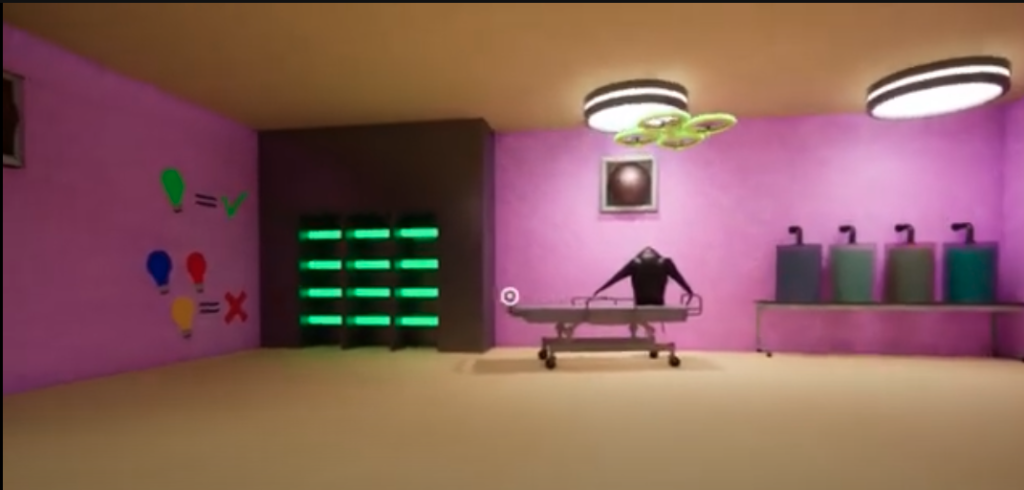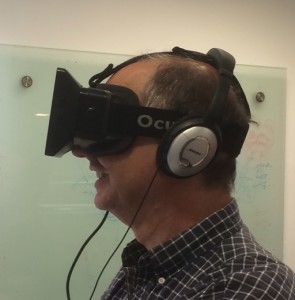May 13, 2023
Garten of BanBan 3’s Nabnaleena revival room
My grandson and I spent about 2 hours playing Garten of BanBan 3 this morning, trying to get through the room where you have to revive Nabnaleena by injecting her with compounds you create by mixing colors.This requires going through multiple loops of the same actions within a time limit and maybe some other conditions.
It’s very annoying. Neither of us could complete the tasks quickly enough even when we seemed to have done so with maximum efficiency.
Here’s the secret — although it contradicts in-game instructions and guides by other players.

You are led to believe that the sequence of events is:
- Grab the hypodermic
- Go across the room to see what color compound you have to make, and press the two right colors to make it. (Check the chart to the left.)
- Click the button to start the mixing. At the end, it will fill t he hypodermic.
- Click on the unconscious Nabnaleena to rouse her.
- Scurry to the other side of the room and click on the drone controller.
- Click whichever of the three red wall lights are on.
- Go back to where the drone controller was and pick up the wrench-y looking object. (It turns out that it’s “surgical tongs.”)
- Go over to the wall with the twelve tubes of many colors, and click on each to turn it green. (It takes three clicks to turn a red tube green, two for yellow, and one for blue.)
- Return to step 1
- Repeat until you have completed the right number of cycles. The room will go green and the door will, at last, open.
If you think that’s annoying, there’s also the fact that at least for us the cycle would never complete.
One of the walkthroughs I watched finally revealed the solution: Never do steps #7 or #8; ignore the wall of tubes. That will give you enough time to complete the required number of cycles — four in our case . Despite the instructions on the wall, the tubes section plays no part in the game.
At least not for us.









